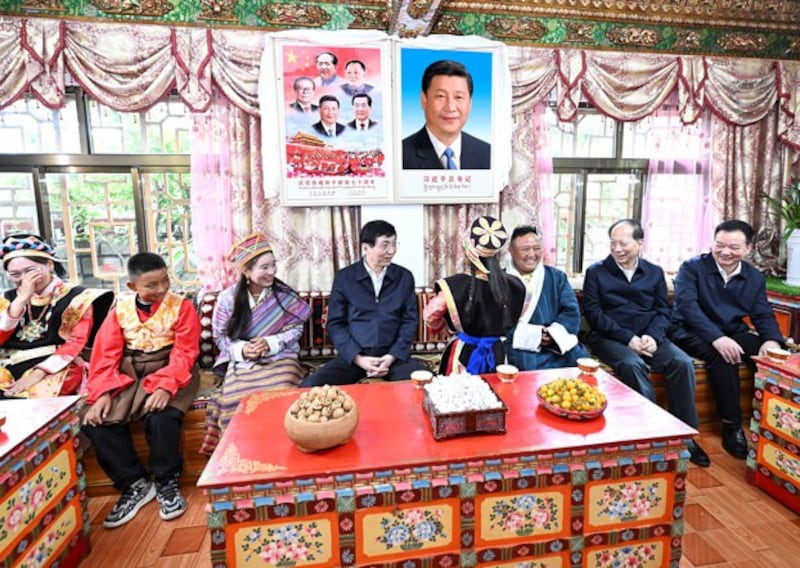China’s security chief emphasized the importance of national security and the need to confront separatist elements during a visit last week to central Gansu province in what some Tibetans see as an indication of a further clampdown on the ethnic minority.
Speaking to a group of provincial security heads, Chen Wenqing, the former head of China's Ministry of State Security, said they must "take a clear stand" to safeguard the unity of China, oppose ethnic separatism and ensure national security, the South China Morning Post reported.
The Chinese government has long accused Tibetans and their spiritual leader, the Dalai Lama, of wanting to separate the autonomous region from China, and has restricted Tibetans’ political activities and peaceful expression of their culture and religion.
Tibetans frequently complain of discrimination and human rights abuses by Chinese authorities and policies they say are aimed at eradicating their national and cultural identity.
Chen, a member of the ruling Chinese Communist Party’s Politburo and chief of the Central Political and Legal Affairs Commission, made the comments during a three-day visit last week to Gansu.
There are 10 Tibetan autonomous prefectures in Chinese provinces bordering Tibet, including Gansu, Sichuan, Qinghai and Yunnan, where many ethnic Tibetans live.

Chen’s visit to Gansu and his focus on the importance of national security and the need to confront separatist elements are an indication of a further clampdown not only in the Tibet Autonomous Region but across the two traditional Tibetan provinces of Kham and Amdo, said Dawa Tsering, director of the Tibet Policy Institute.
The institute is the official think tank of the Central Tibetan Administration, the Tibetan government in exile in Dharamsala, India.
“China’s policy of Sinicizing Tibetan Buddhism to control the Tibetan people’s religious beliefs has been going on since the time of Jiang Zemin; however, it has only gotten worse now,” he said, referring to the former president of China from 1993 to 2003.
Commenting on Chen’s visit, columnist and analyst Adil Brar said the ultimate goal of the Chinese government is to “somehow bring Tibet and Xinjiang into the Chinese state by Sinicizing religion and culture, and that push continues.”
He noted that Wang Huning, a Chinese political theorist and one of the top leaders of the ruling Chinese Communist Party, visited the Tibet Autonomous Region, in late July, and said the purpose of such trips was to send a message that the process of ethnic unity and Sinicization must be advanced because Tibet still has significant cultural autonomy.
“And the central Beijing government is not happy about that,” Brar said.
Jayadeva Ranade, president of India’s Centre for China Analysis & Strategy, said China’s apprehensions about stability in places like Tibet come amid increased concern that Beijing is becoming isolated and its relationship with the United States is deteriorating.
“So, I think these factors have raised their concern about what they apprehend is foreign forces trying to stoke internal unrest,” he said. “And they have always looked at Tibet as a sensitive point, a place where such trouble can be stirred by countries like the U.S. and India.”
Translated by Tenzin Dickyi for RFA Tibetan. Edited by Roseanne Gerin and Malcolm Foster.
